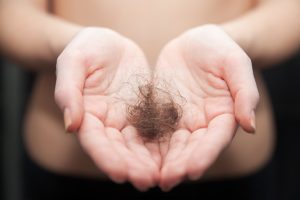- Dry skin is not only an aesthetic concern but can be a nagging issue that affects your comfort and confidence.
- Environmental stressors like extreme temperatures decreased humidity levels, and overexposure to hot showers or baths can contribute to dry skin.
- Daily routines and skincare choices can inadvertently be your skin’s foe, leading to moisture loss.
- Genetics can render some people more prone to dry skin while aging and certain medical conditions like diabetes can further exacerbate it.
- Over-the-counter moisturizers enriched with ingredients like ceramides can help restore the skin’s hydration balance.
Dry skin, often brushed aside as a mere aesthetic concern, goes beyond superficial appearance. It can become a nagging issue, compromising your comfort and, in extreme cases, your confidence.
Many people have faced bouts of flaky, itchy, and irritated skin at various junctures of life. Therefore, gaining an insight into what triggers this condition, its associated risks, and how to counteract its onset effectively can be of immense value.
Causes of Dry Skin
Several factors contribute to dry skin. Some primary reasons include environmental stressors like extreme temperatures, decreased humidity levels, and overexposure to hot showers or baths.
Environment
The environment you inhabit plays a pivotal role in your skin’s health. Dry and cold climates are notorious for stripping the skin of its natural moisture. Furthermore, extended exposure to water and boiling water can weaken your skin’s natural protective barriers, leading to moisture loss.
Routine
Your daily routines and choices can inadvertently be your skin’s foe. The allure of a long hot shower on a chilly morning or the frequent use of fragrant soaps might sound benign. Yet, these practices can rob the skin of its essential oils. Similarly, skincare products laden with harsh chemicals can further exacerbate skin dryness.
Internal Factors
Of course, internal factors can also lead to dry skin. Skin can become drier as you age due to a decrease in the production of natural oils. Certain medical conditions can also be the culprit.
Genetics

While people often look outward for reasons, the cause might sometimes lie within. Genetic predispositions, for instance, can render some of us more prone to dry skin. Aging, too, naturally diminishes the skin’s ability to retain moisture, leading to increased dryness over time.
Health Conditions
One particular health condition that often goes unnoticed in the context of skin health is diabetes. Diabetes can lead to dehydration and hinder optimal blood circulation, culminating in drier skin.
Recognizing this relationship underlines the importance of specialized care management for diabetic people, ensuring they address not just internal but external manifestations of the condition. Proper treatment plays a crucial as it does not just provide temporary relief but also helps to restore the skin’s equilibrium in the long run.
Risk Factors for Dry Skin
Apart from factors like aging, genetics, and health conditions, certain other risks must be accounted for. Here are a few of them.
Age and Gender Dynamics
As you journey through different stages of life, your skin’s needs and vulnerabilities evolve. Elderly individuals often experience a marked decline in the skin’s natural oil production, rendering it more susceptible to dryness and associated discomfort.
Dry skin doesn’t discriminate based on gender. While certain skincare routines or products might vary between men and women, both are equally susceptible to the factors that cause dryness.
Medical and Lifestyle Elements
Beyond diabetes, several health conditions can escalate the risk of dry skin. Eczema, for example, inherently makes the skin more dehydrated. Diseases like hypothyroidism can also play a part, where the skin fails to retain adequate moisture.
While you can’t always control your medical predispositions, your lifestyle choices lie squarely in your hands. Smoking, for instance, deteriorates skin health, reducing elasticity and moisture. A diet devoid of essential fats, or inadequate water intake can similarly contribute to dry, lackluster skin.
Effective Treatments for Dry Skin
The good news is several treatment options are available to counter the onset of dryness.
Over-the-counter moisturizers

Treating dry skin isn’t just about slathering on any available moisturizer. It’s about identifying the cause and then adopting a targeted approach. Over-the-counter moisturizers enriched with ceramides, hyaluronic acid, and glycerin can help restore the skin’s hydration balance.
Prescriptions
For those grappling with severe dryness, seeking expert advice is crucial. Dermatologists can recommend prescription treatments tailored to individual needs, ensuring that the skincare regimen bolsters the skin’s health without causing harm.
Wrapping Up
Understanding dry skin is the first step towards reclaiming supple, hydrated skin. By being aware of the causes and risk factors and harnessing the myriad of treatments available, one can effectively navigate the challenges of dry skin. Remember, like any other organ, your skin demands attention, care, and sometimes professional intervention.













